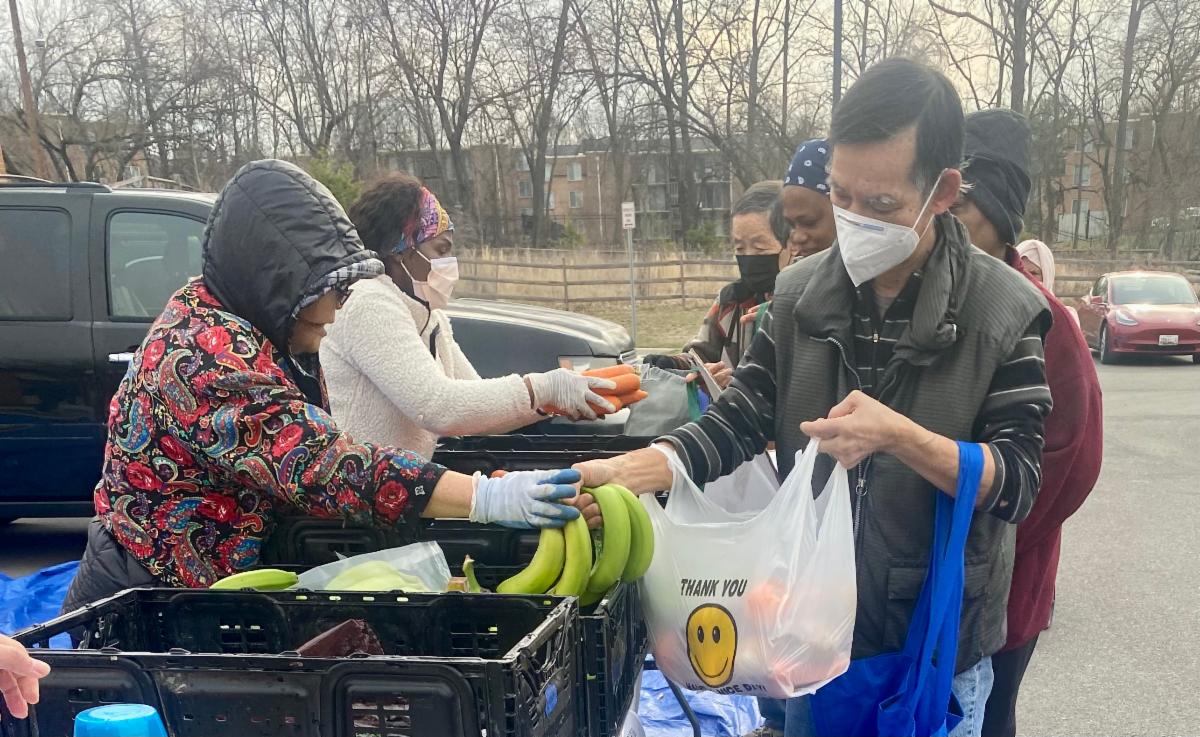The AfriThrive Healthy Food Initiative and Mobile Food Pantry are designed to improve the health and nutrition of the most vulnerable immigrant and minority families. Giant Food has supported this nonprofit through its Bloomin’ 4 Good Program.
Tell us about AfriThrive.
I’m originally from Kenya and came to this country through a Fulbright Scholarship program in 2000. My husband came first in 1999, and then I joined him with our three children. We settled in Atlanta, Georgia, where I did a master’s degree at Georgia State University, and later, I attended the University of Maryland College Park for my doctorate and settled in this community. I’ve spent almost 17 years in international development.
AfriThrive started in 2013 as a way to help settle new immigrants from Africa, informed by our own lived experience when we came to the United States. At that time, we didn’t know anybody. We didn’t know where to shop or where to get what. We didn’t know which food to buy. So, we started helping immigrant families access culturally appropriate food here in Montgomery County while they had a chance to process settling into their new lives.
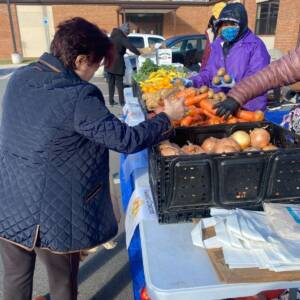
Our inability to find culturally appropriate, indigenous foods that families could relate to drove us to start a garden where we grew vegetables and shared the culturally appropriate vegetables with families in need.
Our local food system is challenged, and it’s not diverse like the diversity of the population we have. Strengthening such a food system is really a complex problem, and we could not do it alone. We needed more people to be involved. We needed more discussions. And we needed more structure to respond to this problem because the immigrant population was growing, and people were looking for where to buy food.
Our local food system is challenged, and it’s not diverse like the diversity of the population we have.
As a result, I started AfriThrive in 2019, still juggling my full-time job and running AfriThrive as a part-time volunteer. It was challenging, but when the pandemic came, AfriThrive became what it is today, creating economic opportunities for underserved African immigrant communities through building a sustainable and culturally appropriate local food system in the Greater Washington, D.C., area.
What services do you provide to the community?
We started the Healthy Food Initiative in the summer of 2020, at the height of the pandemic, when the stores were shut, and everybody was panicking, wondering where to find food they could cook for their families. The traditional food pantries normally stocked canned and other food that was not relevant to the people we serve or our community members. We started looking for fresh vegetables, fruits and grains that people in our community are used to and made them available to the families.
Today, we have two farms in the western part of Montgomery County where we cultivate and harvest culturally appropriate vegetables, such as African nightshade and pumpkin leaves, that are transported to the distribution center and shared among the families. This entire process is run by volunteers, with the exception of our farm manager, who helps manage the volunteers.
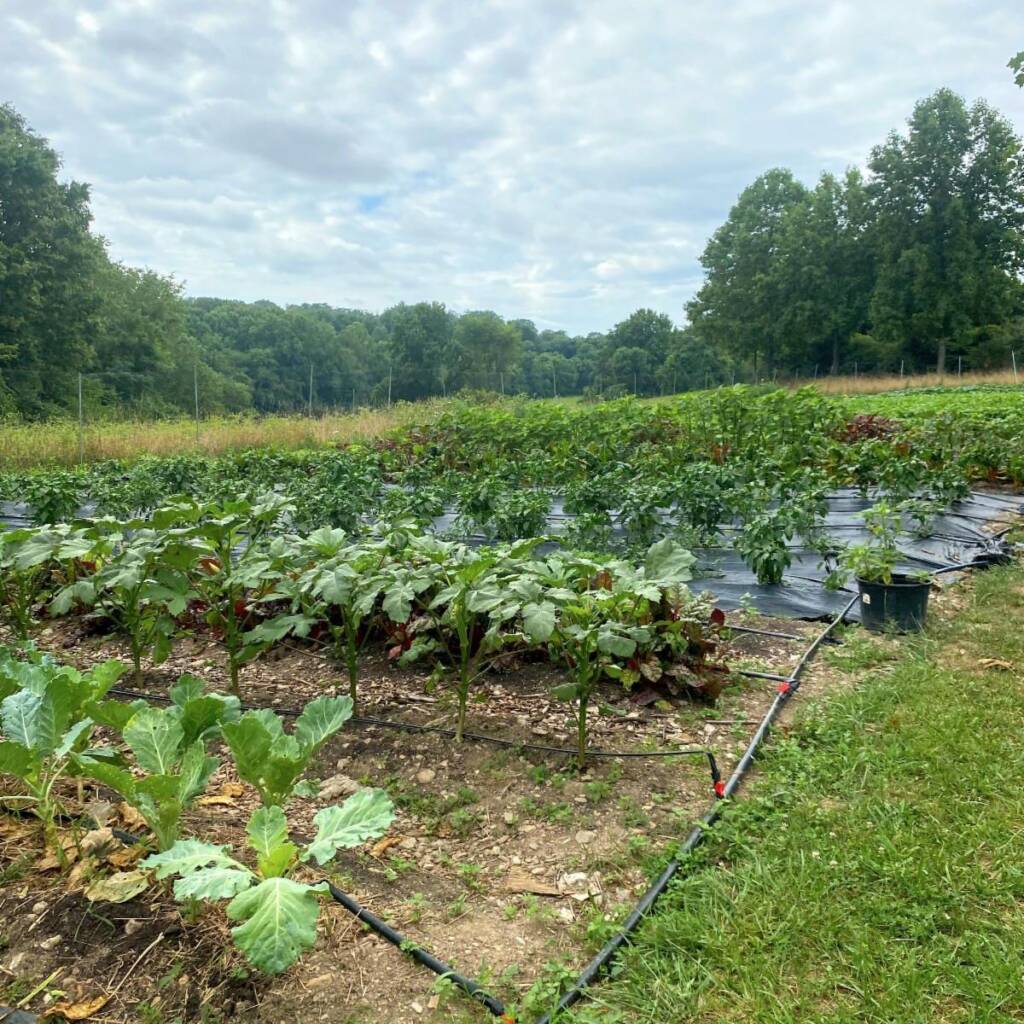
We’ve expanded our program into Baltimore County, where we’re serving about 400 families a week in addition to the 600 families we serve in Montgomery and Prince George’s Counties.
The Mobile Food Pantry started during the pandemic when we didn’t have a particular spot from which we distributed the food. We were driving from family to family, apartment complex to apartment complex. We went to where people were. We sorted food on our kitchen tables and in our garage. Now we have specific distribution locations.
We do have vans that help us carry the food. And this has been due to the support from our partners, especially D.C. Central Kitchen, the nationally recognized community kitchen. Our partnership with them started in the summer of 2020; they donate food to us that we give to families in need.
We are also giving them dignity because even those who need the food come to participate as volunteers. Over 30 volunteers come out every week to give their time, and in 2022, we had volunteer time valued at about $180,000. We really have the confidence of the community.
And we are not serving just Africans; we’re serving everybody. When I see the number of cars lined up at our distribution center, I think we won’t have enough food. But somehow, they all get food, and they’re able to take food home to cook. It’s wonderful.
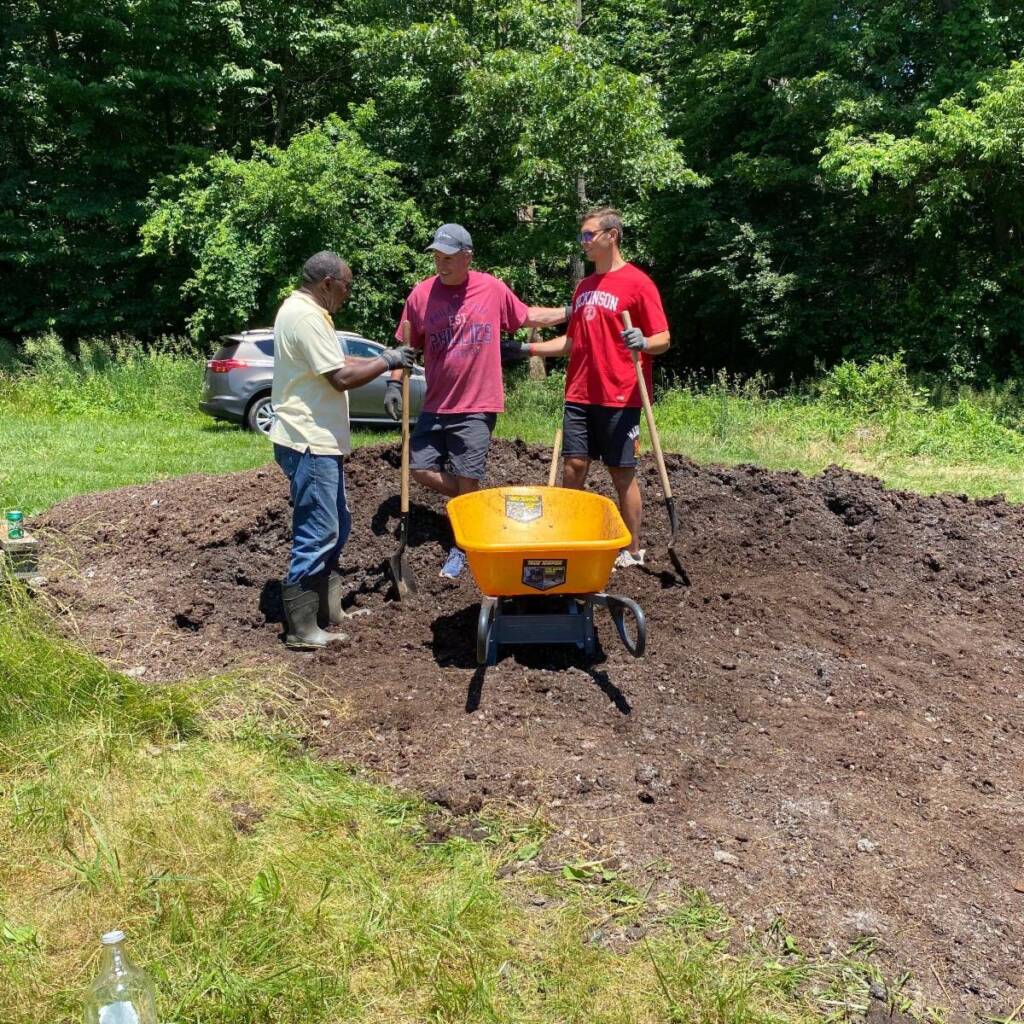
What sets you apart from other organizations in your community?
We are the only culturally specific food pantry in this area. We are very specific in the kind of food we carry and give to the families. And really, we have grown because of the support of many organizations and donors who realize this population was underserved.
We are uniquely positioned to address the needs of underserved African immigrant populations and refugees. This population struggles to connect with traditional service providers because of linguistic and cultural differences. They don’t want to ask; they don’t want you to know they’re in need. It’s not within their culture to ask for help.
Tell us a story that illustrates the good work of your organization.
The stories that make AfriThrive are the stories of the people we serve. This is the story of one family that moved from California to Maryland during the pandemic. The husband is in the military; his clinic shut down because of COVID, and they were transferred to Maryland.
They are a young family with kids. The mom, Lydiah, was looking for food and had heard about AfriThrive through social media. She called, saying, “I think I need food.” All I asked was, “What’s your address?” I got the van and drove the food to her door. She couldn’t believe it. We continued giving her food, and then she came to us to get food for her neighbors. Eventually, she carried so much food back to her neighbors that she opened a distribution center outside her apartment complex.
What is your most outstanding achievement or contribution to the community?
I’m humbled when I look back and see our ability to give voice to community members who have experienced systemic barriers to accessing healthy food. I’m proud of that because now the county knows there’s culturally appropriate food. Food is culture.
I’m humbled when I look back and see our ability to give voice to community members who have experienced systemic barriers to accessing healthy food.
One of our clients had gone to a food pantry and got canned food, but she didn’t have a can opener. They struggled to open it using a knife, and she ended up cutting herself. Then her kids asked, “Mom, when will we get real food?” In their culture, there is no canned food, so they were looking for “real food.” So, our ability to bring that to voice is what I’m proud of, and you really can’t put a price on that.
We just reached the milestone of 1 million pounds of food distributed. That’s about 800,000 meals.
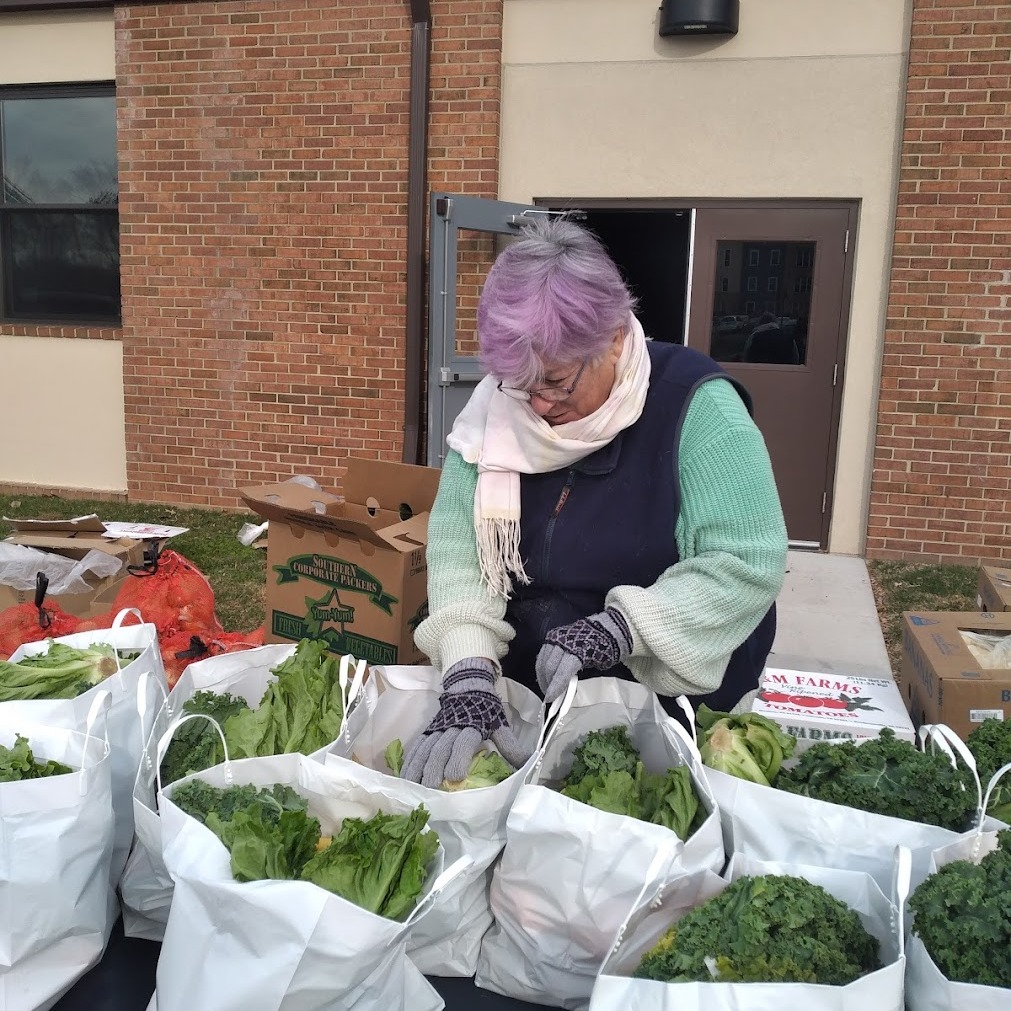
What do you want people to know about AfriThrive?
It’s a community organization addressing systemic barriers affecting immigrant populations, specifically hunger and childhood hunger. And if we can feed every child, irrespective of their color or socioeconomic status, we will have done our job.
How will you use the funds raised from the Giant Food Bloomin’ 4 Good Program?
The Giant Food Bloomin’ 4 Good Program has been a really great help to us. The funds will go towards our volunteer management. As I mentioned, we have a big pool of volunteers and managing their schedules can be tricky. So, we will use the funds for coordinating our volunteers.
Is there anything you would like to add?
I will give a call to support us. As a growing organization, there are challenges in growing our capacity. We do not have cold storage, even handling this volume of food. We do not accept food donations outside of our distribution day, which greatly limits our services. We could serve more people if we had cold storage. Food prices have gone up, and the lines here are longer. We see 2023 as a tough year. So, we are looking for partners who can support our mission.
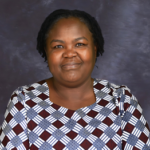
Dr. Truphena Choti is Founder and CEO of AfriThrive, Inc.
Published June 10, 2023.

